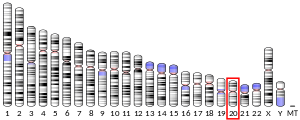
Lipopolysaccharide binding protein

4M4D392916803ENSG00000129988ENSMUSG00000016024P18428Q61805NM_004139NM_008489NP_004130NP_032515Lipopolysaccharide binding protein is a protein that in humans is encoded by the LBP gene. Lipopolysaccharide binding protein is a protein that in humans is encoded by the LBP gene. LBP is a soluble acute-phase protein that binds to bacterial lipopolysaccharide (or LPS) to elicit immune responses by presenting the LPS to important cell surface pattern recognition receptors called CD14 and TLR4. The protein encoded by this gene is involved in the acute-phase immunologic response to gram-negative bacterial infections. Gram-negative bacteria contain a glycolipid, lipopolysaccharide (LPS), on their outer cell wall. Together with bactericidal permeability-increasing protein (BPI), the encoded protein binds LPS and interacts with the CD14 receptor, probably playing a role in regulating LPS-dependent monocyte responses. Studies in mice suggest that the encoded protein is necessary for the rapid acute-phase response to LPS but not for the clearance of LPS from circulation. This protein is part of a family of structurally and functionally related proteins, including BPI, plasma cholesteryl ester transfer protein (CETP), and phospholipid transfer protein (PLTP). Finally, this gene is found on chromosome 20, immediately downstream of the BPI gene. Lipopolysaccharide-binding protein has been shown to interact with CD14, TLR2, TLR4 and the co-receptor MD-2. This article incorporates text from the United States National Library of Medicine, which is in the public domain.
